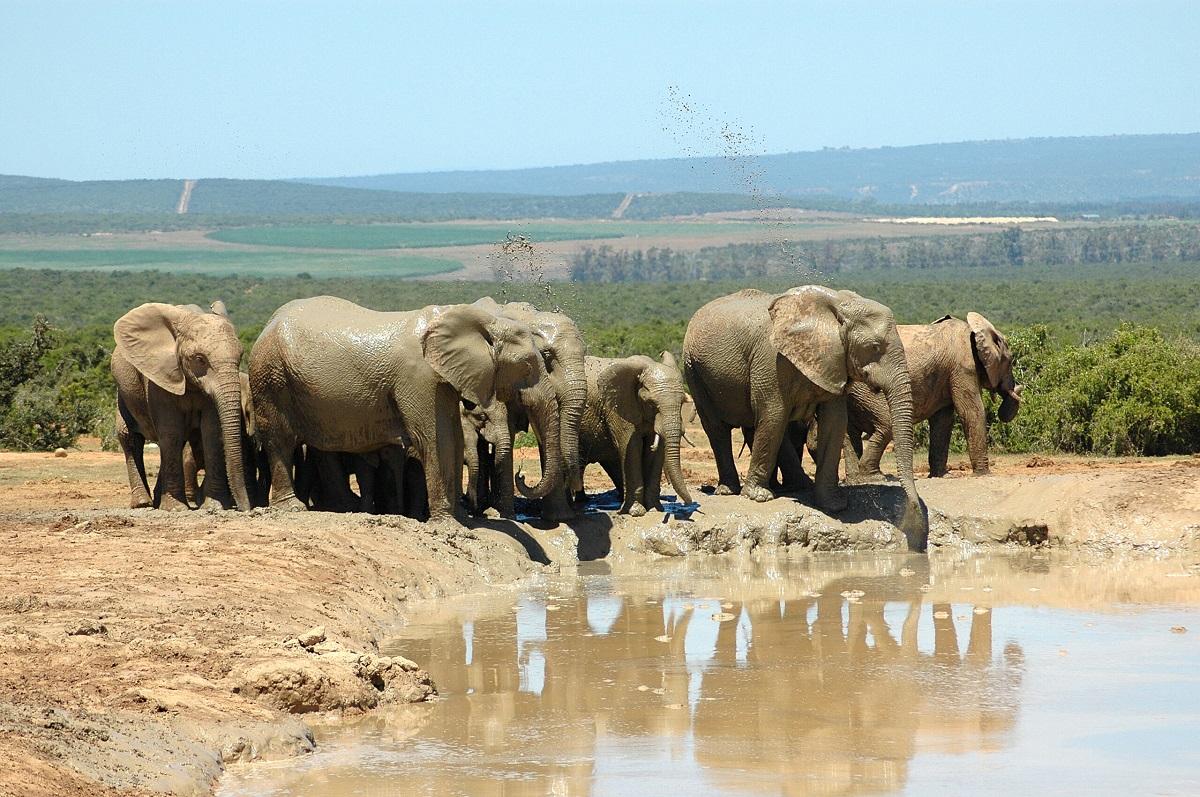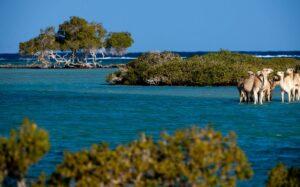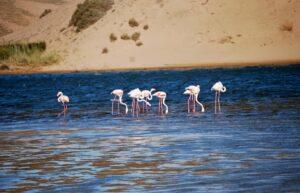Located near Port Elizabeth in the Eastern Cape of South Africa, Addo Elephant National Park is a famous wildlife sanctuary with a rich history of conservation. Established in 1931 to protect the last remaining elephants in the region, the park has grown significantly and now covers over 1,600 square kilometers.
Addo Elephant National Park is the third largest national park in South Africa and is famous for its large population of elephants, as well as its diverse range of wildlife. This includes the Big Five (elephant, lion, leopard, buffalo, and rhino) and marine species such as great white sharks and southern right whales.
The park’s varied ecosystems, from dense thickets to open plains and coastal dunes, provide a unique and captivating safari experience for nature lovers and adventure. Whether you’re interested in game drives, hiking, or birdwatching, Addo Elephant National Park offers an unforgettable journey into the heart of South Africa’s wildlife heritage.
Please Download Our Mobile App here
Overview of Addo Elephant National Park
Addo Elephant National Park spans a variety of landscapes, from the dense, bushy environments favored by elephants to expansive plains and even a coastal section that includes islands in the Indian Ocean. Originally established to protect just 11 elephants, the park has since expanded its range and conservation efforts to include a wide range of species. It is now home to over 600 elephants, along with lions, leopards, buffalos, black rhinos, zebras and a myriad of antelope species.
One of the park’s most unique features is its “Big Seven” status, which includes not only the traditional Big Five but also the great white shark and the southern right whale, thanks to its marine reserve. The diverse ecosystems within the park mean that visitors can experience everything from traditional safari game viewing to marine life observation, making it one of the most versatile parks in South Africa.
Wildlife in Addo Elephant National Park
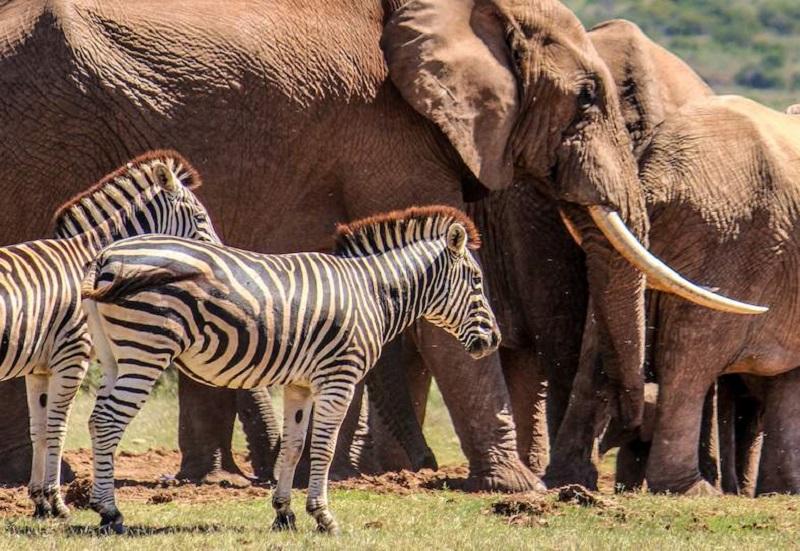
As the park’s name suggests, elephants are the main attraction in Addo Elephant National Park. The park is home to one of the densest elephant populations in the world, and visitors are almost guaranteed to spot these majestic creatures during their visit. The elephants in Addo are known for being somewhat smaller than those in other parts of Africa, possibly due to the park’s nutrient-rich diet.
In addition to elephants, Addo boasts a healthy population of the Big Five: lions, leopards, buffalos, black rhinos and of course, elephants. Lions were reintroduced into the park in the early 2000s and have since thrived, providing exciting opportunities for visitors to observe these apex predators in action. The park’s black rhinos are a key part of conservation efforts to protect this critically endangered species.
Other notable species in the park include zebras, warthogs, hyenas, and a variety of antelope species such as eland, kudu, and red hartebeest. Birdwatchers will also be thrilled by the over 400 species of birds that call the park home, ranging from the endangered African penguin along the coast to the majestic martial eagle soaring over the plains.
Best Time to Visit Addo Elephant National Park
Addo Elephant National Park is a year-round destination, but the best time to visit largely depends on your wildlife viewing preferences. The dry season, from May to September, is considered the best time for game viewing, as animals congregate around waterholes, making them easier to spot. During this time, the vegetation is less dense, improving visibility for wildlife enthusiasts.
The rainy season, from October to April, brings lush greenery to the park, which is beautiful but can make game viewing more challenging due to the thicker vegetation. However, this is also the best time for birdwatching, as migratory species arrive, adding to the park’s already diverse birdlife.
The coastal section of the park is best visited between June and November, which is whale season in South Africa. During these months, visitors have a good chance of spotting southern right whales along the coastline.
Getting to Addo Elephant National Park
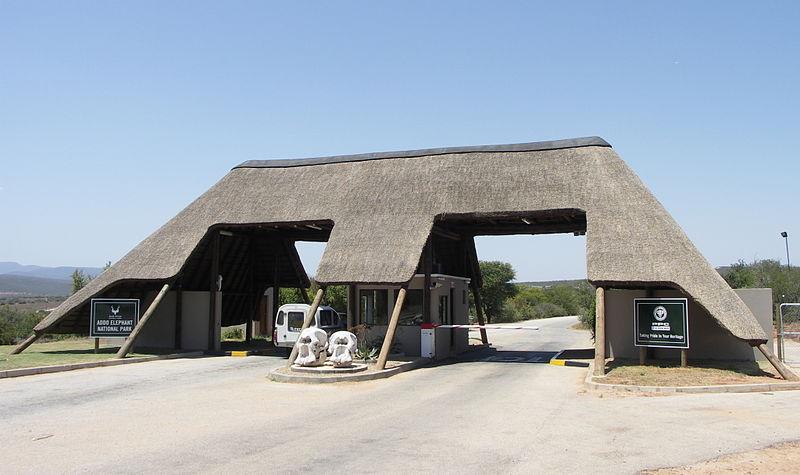
Addo Elephant National Park is located about 75 kilometers from Port Elizabeth, making it easily accessible by road. The drive from Port Elizabeth to the park takes about an hour, and the roads leading to the park are well-maintained, making it convenient for both local and international visitors.
For those flying into the area, Port Elizabeth International Airport is the closest airport, and from there, visitors can rent a car or join a guided tour to reach the park. Self-drive safaris are popular in Addo, but there are also several lodges and camps within the park that offer guided game drives for those who prefer a more structured experience.
Other Activities in Addo Elephant National Park
Addo Elephant National Park offers a wide range of activities for visitors beyond traditional game drives. One of the most popular activities is hiking, with several trails ranging from easy walks to more challenging treks that offer spectacular views of the surrounding landscapes. The Zuurberg Mountains, located in the northern part of the park, provide an excellent setting for hiking and horseback riding.
Birdwatching is another popular activity, especially during the rainy season when migratory birds are present. The park’s diverse ecosystems provide habitats for a wide range of bird species, making it a prime destination for bird enthusiasts.
The coastal section of the park offers marine adventures, including whale watching and island tours. The nearby islands, which are part of the park’s marine reserve, are home to endangered African penguins and other seabirds, making them a must-visit for bird lovers.
Park Fees for Addo Elephant National Park
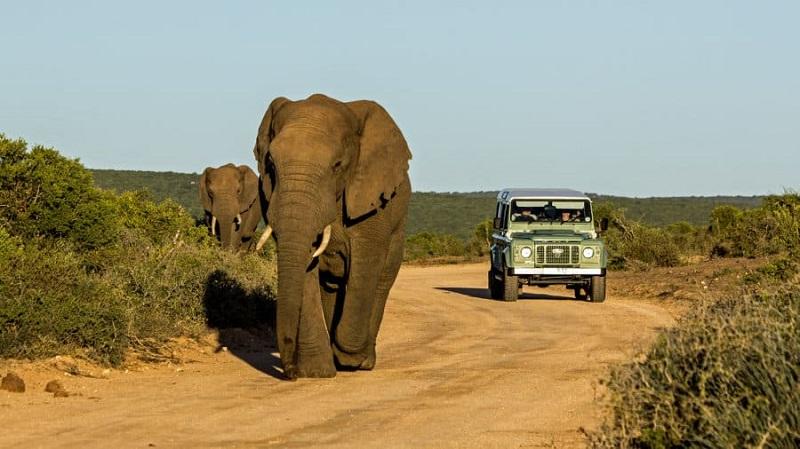
As of 2024, the park fees for Addo Elephant National Park are:
- Foreign Visitors (Adults): $25 per person per day
- Foreign Visitors (Children): $12 per person per day
- South African Residents (Adults): R110 per person per day
- South African Residents (Children): R55 per person per day
These fees contribute to the park’s conservation efforts and are necessary for the maintenance of the park’s facilities and wildlife protection initiatives.
FAQs: Visiting Addo Elephant National Park
Is a self-drive safari recommended in Addo Elephant National Park?
Yes, Addo is one of the few parks where a self-drive safari is highly recommended. The roads are well-maintained, and there are numerous waterholes where wildlife congregates, making it easy to spot animals from your vehicle.
Can I see the Big Five in Addo Elephant National Park?
Yes, Addo Elephant National Park is home to the Big Five (elephant, lion, leopard, buffalo, and rhino), making it one of the top wildlife destinations in South Africa.
Are there any guided game drives available?
Yes, the park offers guided game drives that are led by experienced rangers. These drives provide valuable insights into the park’s wildlife and increase your chances of spotting elusive animals like leopards and black rhinos.
Conclusion
Addo Elephant National Park is a remarkable destination for wildlife enthusiasts, offering a chance to see one of the densest populations of elephants in Africa. Whether you’re embarking on a self-drive safari or enjoying a guided game drive, Addo promises an unforgettable adventure in the heart of the Eastern Cape.
